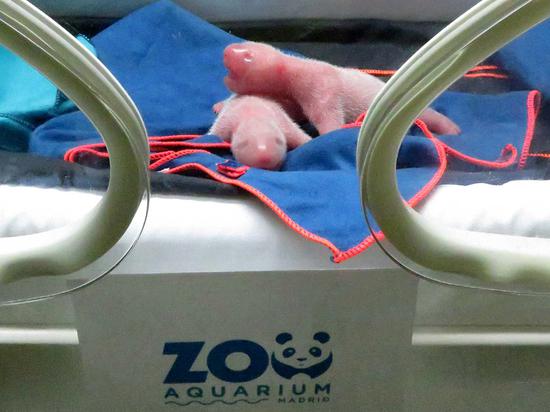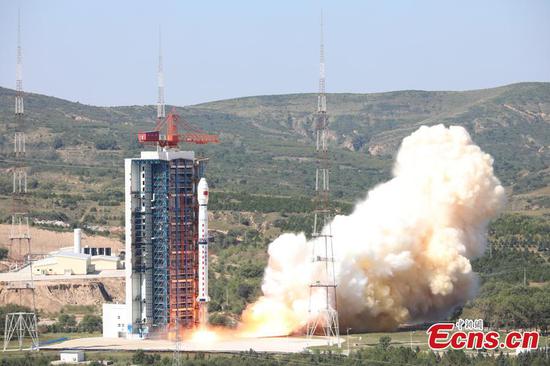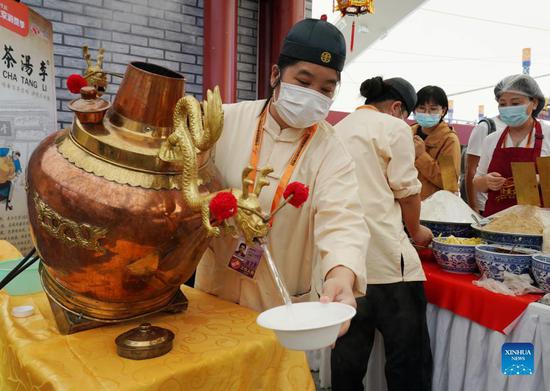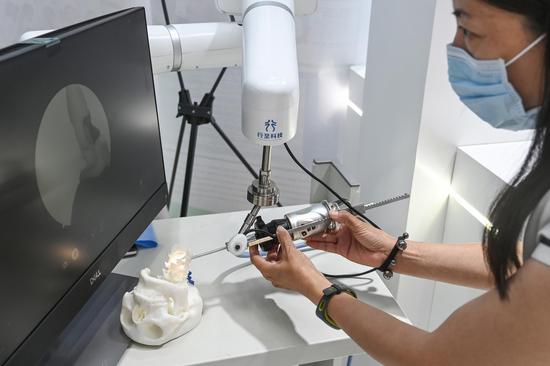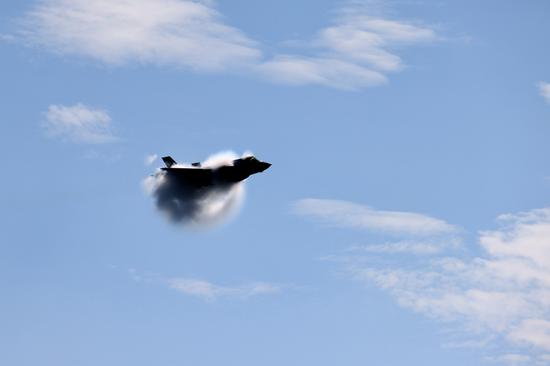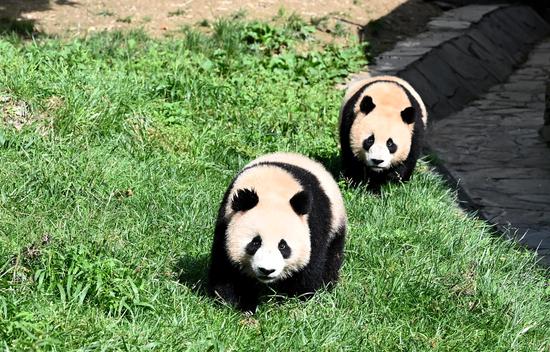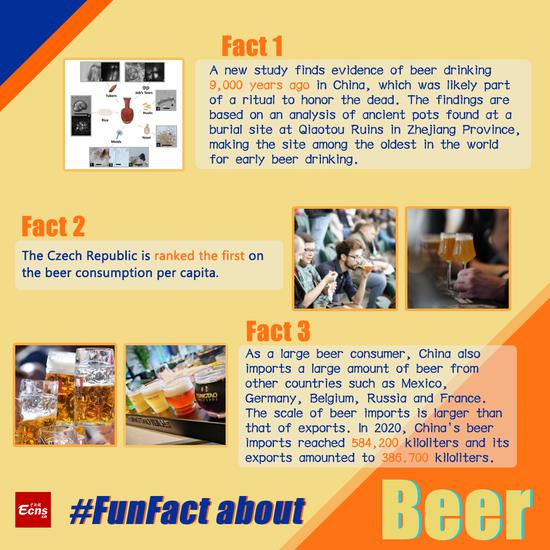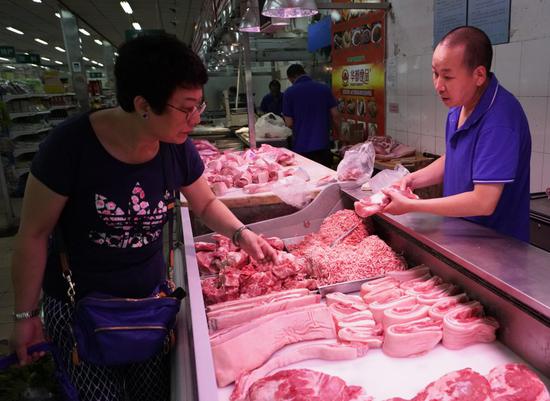
A customer selects meat at a market in Beijing, capital of China, July 10, 2019. (Xinhua/Luo Xiaoguang)
Imported frozen food may play a role in the emergency of SARS-CoV-2 in China, said a recent research conducted by British and Chinese scientists and published in U.S. magazine Science.
The researchers reviewed the SARS-associated coronavirus and discussed possible animal origin of the novel coronavirus, reaching the conclusion that "animal-to-human transmission associated with infected live animals is the most likely cause of the COVID-19 pandemic," according to the study report titled "The animal origin of SARS-CoV-2."
"However, the massive scale of cold-chain supply ... suggests that frozen susceptible-animal carcasses, either for human or animal consumption, should not be discounted as playing a role in the emergency of SARS-CoV-2," read the report published in late August.
The report noted that the outbreak of the African swine fever virus, which had led to a severe shortage of pork products in China in 2019, increased wildlife-animal contacts, since China imported other meat such as poultry, beef and fish products from international markets in response to the short-fall.
"The resulting increased trade of susceptible farmed animals and wildlife could have brought humans into more frequent contact with meat products and animals infected with zoonotic pathogens, including SARSr-CoVs," it said, pointing to reports of Chinese patients who had contact with imported frozen foods, and of SARS-CoV-2 "apparently identified from frozen food, packaging, and storage surfaces."
The scientists also called for international anti-virus cooperation, saying "humanity musk work together beyond country borders to amplify surveillance for coronavirus at the human-animal interface to minimize the threat of both established and evolving variants evading vaccines and to stop future spillover events."








